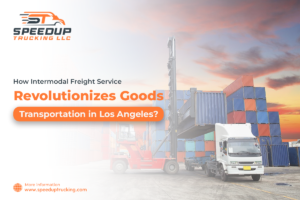A freight claim denotes a formal request done by a shipper or consignee to seek compensation for loss, damage, or delay of goods during transportation. It is an essential process that helps in addressing discrepancies and ensuring fair resolution between parties involved in the shipping and logistics in the LTL ( Less than Truckload) freight transportation industry. Check out more crucial details about freight claims from the following lines.
Defining Freight Claims in Brief
When the shipment of goods occurs, shippers and carriers need to sign a contract for the safe delivery of goods. If any mishap like damage or loss of goods takes place, and the contract is breached, the shipper has the right to seek compensation through a freight claim, restoring the lost revenue.
LTL freight claims need to follow specific guidelines. Shippers must claim it within 9 months from delivery, with carriers having 30 days to acknowledge it.
And the carriers get a time limit of 120 days from the claim’s acknowledgment to get a resolution with the shipper. For concealed damage and shortage claims, carriers must be notified within 5 days of delivery.
To ensure safe goods transport, having the right knowledge about this claim is necessary as it protects businesses from probable disruptions, and legal complexities, offering a smooth freight shipping experience in the end.
What is the Carmack Amendment?
To get an inclusive knowledge of freight claims, it’s important to understand Carmack law. It’s a law that defines the liability of shippers and carriers in the realm of freight transportation. As per this Amendment, carriers need to take responsibility for the freight they have in their “care, custody, and control.”
However, from the shipper’s part, for a successful claim raise, they must demonstrate three key aspects including:
- Freight was in a good state at the time of picking
- Receivers got it in a damaged state, resulting in a specific loss due to the damage.
Some scenarios are there when this claim won’t be applicable. These are:
- Any faulty activity from shippers– If the carrier can prove any fault from the shippers’ end such as improper packaging or improper loading, caused the damage, they will not be held liable.
- Act of God: It includes the unavoidable conditions that go beyond human control like natural disasters (floods, hurricanes, earthquakes) or unforeseen incidents (e.g., the driver experiencing a medical emergency). In these scenarios also this amendment will not work.
- The Public Enemy: Damage caused by military forces or enemies will not make the carrier liable, but this exception excludes harm inflicted by criminals, hijackers, or rioters.
- The Public Authority: If lawful authorities for instance- government are responsible for the freight damage (e.g., trade embargoes, product recalls), the carrier won’t have any liability.
- Inherent Defects in Products– Carriers won’t be liable for freight with inherent defects, like produce decay. But they may be held accountable if their actions accelerate the deterioration process.
In spite of specifying the carriers’ liability, this law does not describe the extent of liability. Even if they are proven responsible for the loss, shippers may not guarantee the total value of damaged goods always.
To get it, you need to distinguish between carrier liability and freight insurance and knowledge about the freight transportation scenarios.
Different Challenges Freight Claims Can Sort Out
Freight claim got highly popular in the freight transportation sector due its capacity to sort out different issues. Some notable of them are:
- Financial Recovery Gets Easy: Freight claims help shippers to recover losses took place goods during transportation, providing financial relief and enhancing profit margins.
- Legal Clarity: By filing a freight claim under the Carmack Amendment you can create a clear legal process for addressing disputes, ensuring fair resolutions and preventing prolonged legal battles.
- Carriers Responsibility: Freight claims hold carriers liable for goods transportation that encourages them to follow better handling practices reducing negligence level.
- Streamlined Communication: Engaging in the freight claim process fosters open communication between shippers and carriers, promoting transparency and mutual understanding.
- Risk Mitigation: Resolving freight claims reinforces the importance of risk management in shipping operations, prompting shippers to select reliable carriers and invest in freight insurance.
- Process Improvement: Analyzing the causes of freight claims allows shippers and carriers to identify weaknesses in their logistics chain and implement improvements according to need that can prevent complex issues in the future.
- Time Efficiency: The specific timeframes for claim filing and resolution ensure prompt processing, minimizing delays and expediting compensation.
- Regulatory Compliance: Filing freight claims in adherence to the Carmack Amendment ensures compliance with federal regulations, protecting shippers from potential legal penalties.
Conclusion
But remember freight claim is not at all an easy procedure. Rather it needs time, effort, and patience. However, to get your claim successfully and ship your products more affordably with increased efficiency, contact experts like Speedup Trucking LLC who can help you ship more affordably and efficiently.


